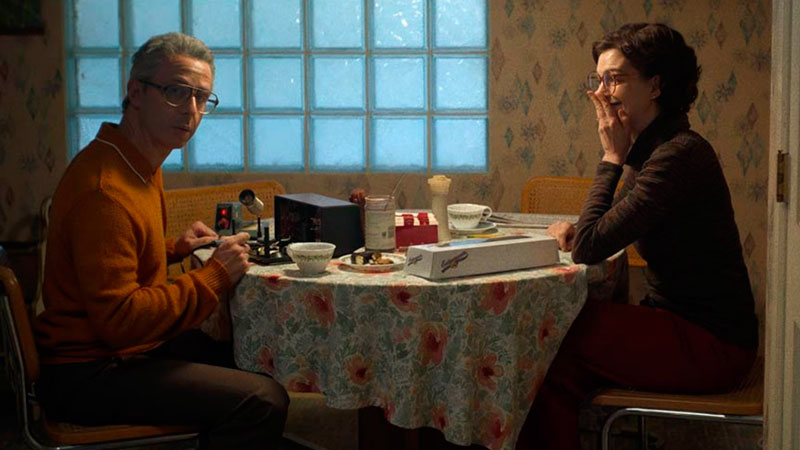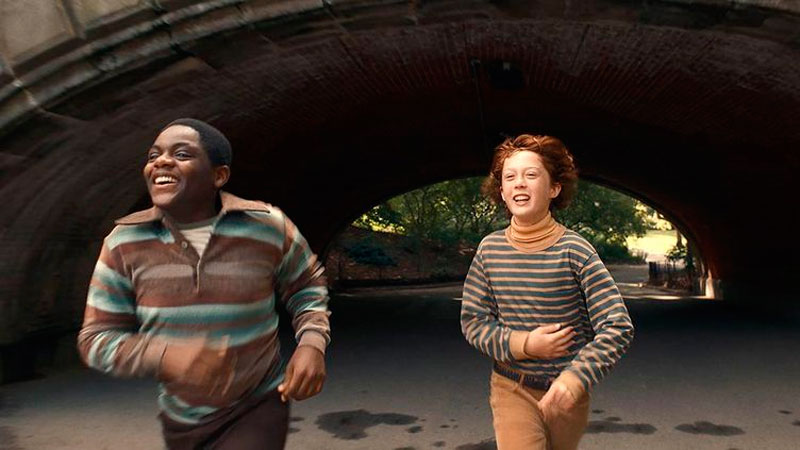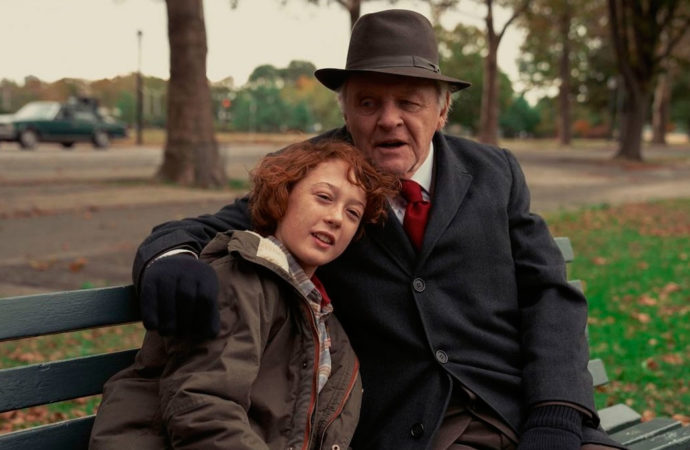James Gray undertakes a long-considered project in Armageddon Time, as is often the case with the most personal, profound and intimate. Partially autobiographical, the film delves into the family dynamics of a sixth-grader of Jewish descent whose immediate family remains cohesive and strives to keep alive the memory of his ancestors. A fourth-generation immigrant, eleven-year-old Paul Graff (Banks Repeta) grows up in Queens in a household that encourages the American dream and seeks the best future for his children. The presence of older relatives perpetuates the memory of the pursuit of happiness and prosperity, without tradition being a burden. That is why the character of the grandfather, played by Anthony Hopkins, is an example in his way of transmitting values (Be a mensch), but also in his understanding and tolerance of the new times.
Without sentimentality, Armageddon Time, premiered at the 75th Cannes Film Festival, arrives in the year in which Belfast triumphed, a coming of age of a very different sign, but it does not need the black and white, to which Alfonso Cuarón also resorted in Roma, to deal with the contradictions of paternal longings for a better life for their children. Jews and Democrats, painfully witness the triumph of Reagan in 1980, who threatened America with the advent of Armageddon if there was no remedy and an iron fist on the eve of the end of the Cold War, and Gray’s skill lies in the exploration of the unacknowledged insecurities of parents (Jeremy Strong and Anne Hathaway) whose subterranean hypocrisy leads them, for example, to defend public school (the mother is president of the school board) but to desire a private education that opens up greater possibilities in the future.

The American dream has thin feet of clay in a cheerful home, where Paul can indulge in insolence and whimsy, but where he can also take a beating when his father takes off his seatbelt. An educational method that we have observed in the first scene of the film and the figure of the sixth-grade teacher, where affection and a firm hand go together in a balance that is more schizoid than effective.
The evolution of the characters, especially the child protagonist, takes us away from a sepia family photo, as portrayed by Kenneth Branagh. The director of Ad Astra achieves an outstanding performance from the little actor, reflecting his unconscious rebelliousness and later disappointment, doubt and contradiction. For this, the director opts for a plot device, through the character of Johnny (Jaylin Webb), a poor, black classmate, who is in the care of his elderly and sick grandmother, a cheerful, enthusiastic and determined young man, with his naivety intact. The best friends play pranks, play truant and protect each other, until loyalty comes into conflict with their own interests, which are those of their class. That will be the moment of truth, when Paul will have to come to terms with his betrayal and the place in the world for which he is destined, his insecurity and need for acceptance, the risks of following his own instinct (to be an artist, to help his young runaway friend) and the fear of being different among the herd of achievers in expensive school uniforms.

The focus of the film is not racial conflict, nor social injustice, but the maturation of a child through his relations with the world and the confrontation with its inconsistencies, characters such as parents and grandparents, teachers and above all the poor black child are pawns in a game whose rules are learned as they go along, first ignored, then broken, later accepted and in a final gesture, opened up as a question mark.
Despite the personal nature of the endeavour, Gray’s film does not fall into sentimentality, sweetening or nostalgia and makes it clear that the avatars of the characters are not independent of the system that protects, shields or excludes them according to their social extraction and their position in the economic pyramid. Armageddon Time is a new direction in the director’s cinema, a look inwards rather than backwards, perhaps a rite of passage that almost all the greats have fulfilled.









No one has posted any comments yet. Be the first person!